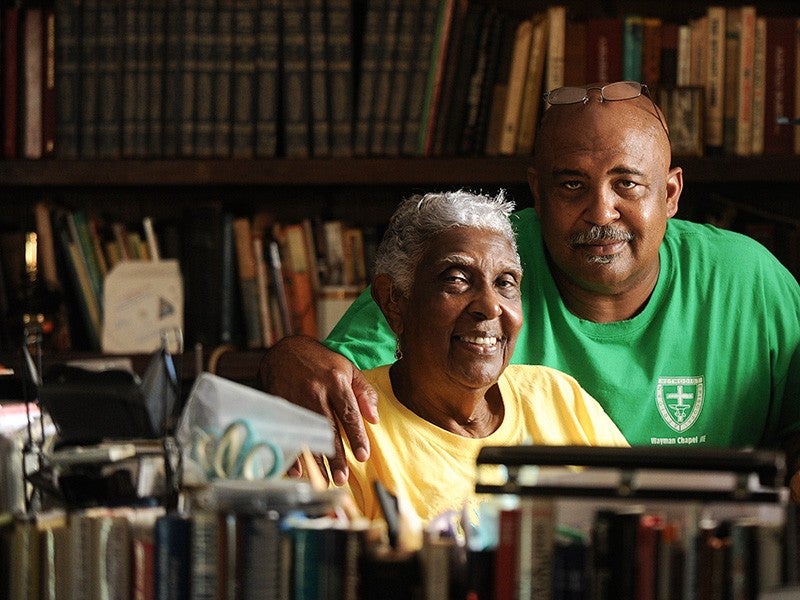Court Declares that EPA Failed To Protect Civil Rights
Victory
—Leaders applaud decision and vow to keep fighting for justice
Contact
Today a federal court ruled that EPA violated the law by waiting a decade or more to investigate civil rights complaints filed by community groups across the country. The lawsuit challenged EPA’s failure to protect civil rights in the environmental context. Five communities filed the litigation, arguing that EPA had failed to complete civil rights investigations within 180 days as required by law.
Community-based groups in California, Michigan, Texas, Alabama, and New Mexico filed civil rights complaints with the EPA between 1992 and 2003 alleging racial discrimination in the permitting of polluting facilities by state and regional agencies. EPA neglected the complaints until the communities filed suit in 2015 to compel EPA to enforce civil rights law. Under pressure from the lawsuit, EPA finally started to pay attention to these civil rights complaints, but—in most cases—ended up conducting only cursory investigations and closed the book on the cases.
The court found that EPA’s belated investigations did not end the lawsuit and that requiring EPA to respond in a timely matter to future civil rights complaints is appropriate. For some communities, the court’s ruling was welcome but EPA’s failure to enforce the law over time still stung.
“This is a case of both justice delayed and justice denied,” said Phyllis Gosa, who filed a complaint under Title VI of the Civil Rights Act of 1964 against the Alabama Department of Environmental Management (ADEM) in 2003, one of the cases that EPA recently closed. “We waited more than fifteen years for nothing: EPA didn’t come to our community, test the water, or test the air. Meanwhile, we feel that the landfill that ADEM allows to operate in the heart of our community threatens to destroy our way of life.”
Ronald Smith, whose mother helped to file the Alabama complaint in 2003, stated, “We have a right to equal treatment from the Alabama government. If we don’t fight, all our history and land will be covered by this landfill.” The waste that is shipped to the landfill from multiple counties in Alabama and Georgia makes everyday life unbearable in this tight-knit community, which traces its history to Reconstruction-era land grants to former slaves.
“Between the trucks, the smells, and the buzzards, there’s no peace in our community anymore,” added Gosa.
The Civil Rights Act of 1964 prohibits states and other recipients of federal funds from discriminating on the basis of race or national origin, and gives federal agencies responsibility for enforcing the law. Aggrieved community members have the right to file civil rights complaints with EPA, and EPA must complete investigations within 180 days of accepting the complaint.
“Communities cannot sue civil rights violators directly in court,” explained Yale Law School Environmental Justice Clinic student Yume Hoshijima, “so we need to count on EPA to enforce its own rules.”
In Flint, Michigan, the St. Francis Prayer Center filed what was the oldest pending civil rights complaint languishing at EPA. In 1992 the Prayer Center alleged that the Michigan Department of Environmental Quality (MDEQ) discriminated by, among other things, treating African Americans who sought to testify during the permitting process differently from whites. In 2017, twenty-five years after the Prayer Center filed the complaint but one week after EPA filed papers to dismiss the litigation, EPA issued its second-ever finding of discrimination in response to the Prayer Center complaint. Yet EPA also closed the case without requiring any remedy.
“It’s unbelievable: we waited twenty-five years and once we file litigation, EPA finally makes a finding of discrimination, but then EPA doesn’t require any changes to the permit or to policies at MDEQ. Instead, EPA kicked the can down the road, saying that it was going to engage in discussions with MDEQ but not even include the St. Francis Prayer Center in the negotiations,” stated Father Phil Schmitter, one of the leaders of the Prayer Center.
“Today’s decision affirms that EPA cannot continue going through the motions without meaningfully attending to serious problems of environmental discrimination,” stated Suzanne Novak, staff attorney at Earthjustice. “EPA must now secure real changes and ensure civil rights compliance by states and regional authorities that receive EPA funding. How long do communities overburdened with polluting facilities have to wait for justice?”
Earthjustice and the Environmental Justice Clinic at Yale Law School represent CAlifornians for Renewable Energy, the Ashurst Bar/Smith Community Organization, Citizens for Alternatives to Radioactive Dumping, Maurice and Jane Sugar Law Center for Economic and Social Justice, Sierra Club, and Michael Boyd in their action against EPA.
Earthjustice Feature: Righting Civil Wrongs

Additional Resources
About Earthjustice
Earthjustice is the premier nonprofit environmental law organization. We wield the power of law and the strength of partnership to protect people's health, to preserve magnificent places and wildlife, to advance clean energy, and to combat climate change. We are here because the earth needs a good lawyer.